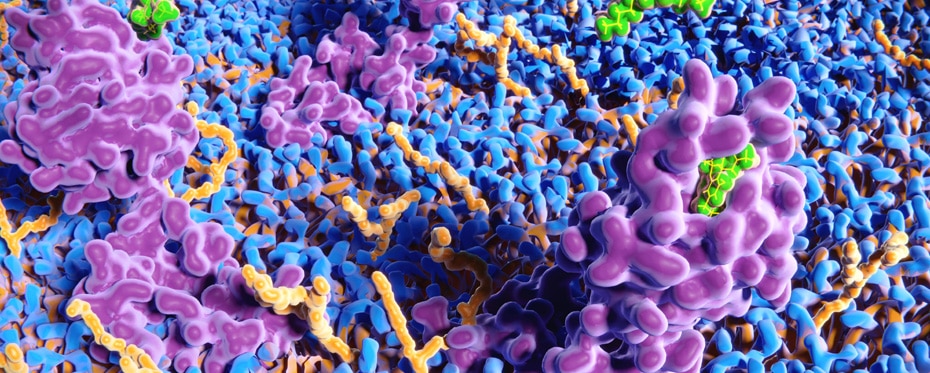Tag: neurons
Loneliness and social isolation: How can we protect our mental health and cognitive functions?

It is well known that social isolation can cause poor mental and physical health. Our recent global experience of compulsory social isolation during the COVID-19 pandemic has created a need to find new ways to prevent its devastating consequences, such as anxiety-induced cognitive decline, from manifesting. Dr Jing Liang and her team at the University of Southern California’s Mann School […]
Neuropathological changes in Alzheimer’s disease linked to four key proteins

Alzheimer’s disease (AD) is characterised by progressive and irreversible loss of memory and thinking skills. Using sensitive cutting-edge techniques, Professor Rafael Luján and his collaborators at Castilla-La Mancha University, Spain, have found changes in the number, distribution, and density of four key proteins in AD. Notably, these proteins affect the ability of nerve cells to process and transmit signals. Not […]
Read More… from Neuropathological changes in Alzheimer’s disease linked to four key proteins
Neuron-less knowledge processing in forests

Dr Aviv Segev, Professor at the University of South Alabama, is researching the knowledge-related activity of forests. While trees do not have neurons, they can build a communication network, and Dr Segev analyses their use of the resources needed for survival. This study demonstrates that neuron-like relations occur in a forest knowledge-processing system. Results demonstrate that trees use mechanisms analogous […]
Can cognitive impairments caused by methamphetamine use perpetuate the addiction cycle?

The repeated use of methamphetamine, or meth, is known to cause significant changes in the brain and cognitive impairments, which might strengthen or perpetuate a user’s addiction. Dr Carmela Reichel at the Medical University of South Carolina has conducted extensive research investigating the relationship between motivated meth use, meth-induced cognitive dysfunctions, and relapse. Her work has highlighted a number of […]
Neuronal cultures to study the brain and neurological disorders

Understanding the brain is essential, for example to treat neurological disorders that affect one in six people worldwide. However, studying the brain is challenging: it is so complex and difficult to access. Cell biologist Dr Daniel Tornero and neurophysicist Dr Jordi Soriano, from the University of Barcelona, developed neuronal cultures that can be used to study mechanisms involved in brain […]
Read More… from Neuronal cultures to study the brain and neurological disorders
Understanding the olfactory system

The recent discovery of endogenous cannabinoids has kickstarted a whole area of research into their function. Cannabinoids have been widely studied in the hippocampus and amygdala of the brain but their role in other regions, including the olfactory system, are largely a mystery. Professor Thomas Heinbockel and his team from Howard University College of Medicine research cannabinoids in the olfactory […]
It’s not only about neurons – How the UK Dementia Research Institute is facilitating an interdisciplinary approach in the global fight against neurodegenerative conditions

Dementia is the world’s biggest challenge in terms of social and health costs. In the UK, we’re projected to have 1 million dementia patients in 2020 at a cost of £26bn; by 2040, costs are projected to reach £55bn. Globally, 50 million people are affected by dementia and this will increase to 152 million by 2050. But, looking beyond the statistics, […]
Drosophila Fezf found to be essential in neural circuit formation

Billions of neurons are wired up to into highly organised neural circuits in the brain. The creation of these circuits is a complex process and it is essential that neurons find the correct partners. Matt Pecot and colleagues from Harvard Medical School are interested in understanding this neural circuit formation. In their studies, by using Drosophila, they have identified the […]
Read More… from Drosophila Fezf found to be essential in neural circuit formation